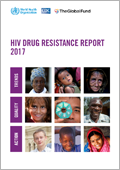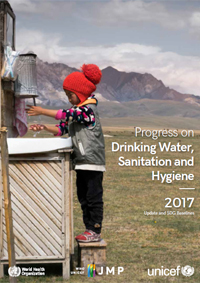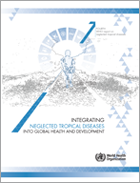State of the world's nursing 2025
<p>Central to the achievement of the Agenda for Sustainable Development is an adequate, equitably distributed and fully supported health workforce. Nurses are the largest occupational group and represent
<p>Central to the achievement of the Agenda for Sustainable Development is an adequate, equitably distributed and fully supported health workforce. Nurses are the largest occupational group and represent

WHO alerts countries to the increasing trend of resistance to HIV drugs detailed in a report based on national surveys conducted in several countries. The Organization warns that this growing threat could
The latest WHO report on the global tobacco epidemic finds that more countries have implemented tobacco control policies, ranging from graphic pack warnings and advertising bans to no smoking areas. About

Some 3 in 10 people worldwide, or 2.1 billion, lack access to safe, readily available water at home, and 6 in 10, or 4.5 billion, lack safely managed sanitation, according to a new report by WHO and UNICEF.
WHO's latest report spotlights critical gaps in prevention coverage, particularly in sub-Saharan Africa. An estimated 43% of people at risk of malaria in the region were not protected by either a net or
<p>This new WHO report reveals that an estimated 325 million people worldwide are living with chronic hepatitis B virus (HBV) or hepatitis C virus (HCV) infection</p>

WHO reports remarkable achievements in tackling neglected tropical diseases (NTDs) since 2007. An estimated 1 billion people received treatment in 2015 alone. WHO has observed record-breaking progress
One in four children in the age group of 13-15 years in India suffer from depression, which affects 86 million people in South-East Asia region, the WHO said. Informing that India has the highest suicide
The report addresses two overarching questions: What inequalities in childhood immunization coverage exist in low- and middle-income countries? And how have childhood immunization inequalities changed
<p>Since the Zika virus was first identified in a monkey in Uganda in 1947, it has rarely caused illness in humans. When people have become infected with the virus, the disease it causes has generally
<p>Every 40 seconds a person dies by suicide somewhere in the world. “Preventing suicide: a global imperative” is the first WHO report of its kind. It aims to increase awareness of the public